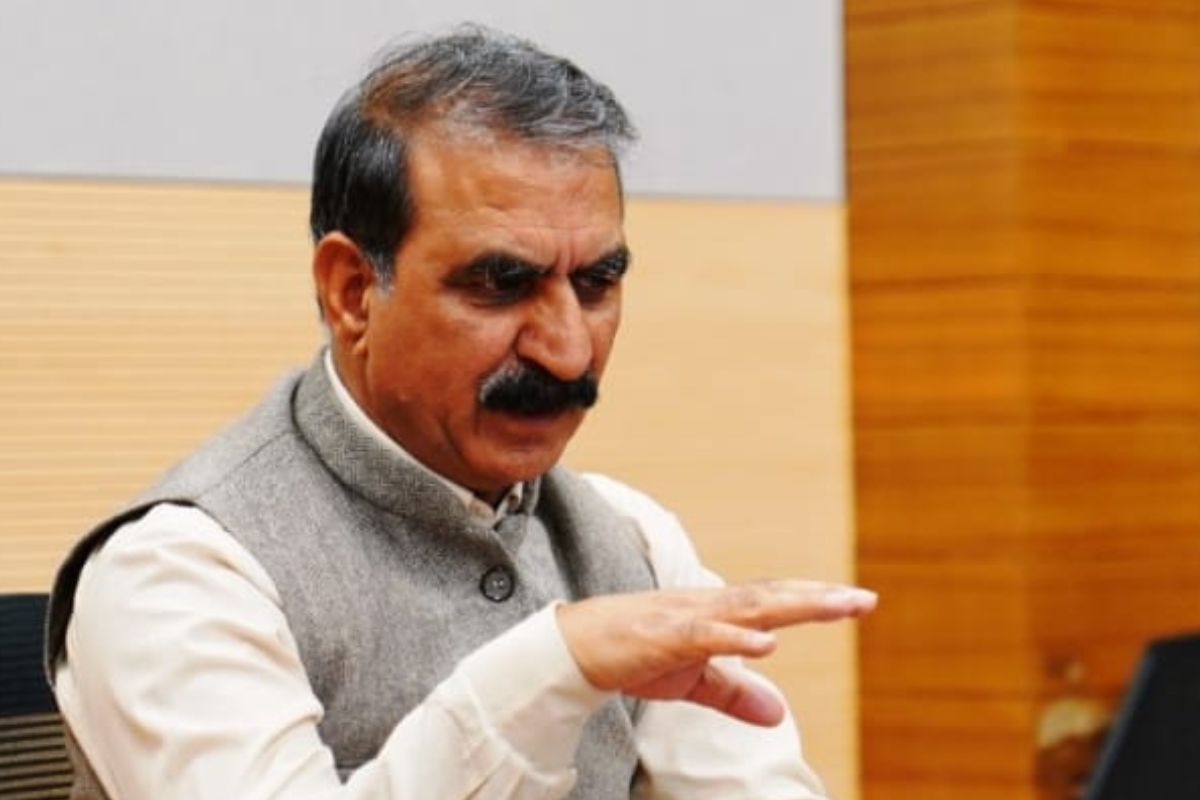J&K CM Omar Abdullah lays stress on Himachal Pradesh-type laws to protect agricultural land
The Chief Minister noted that Himachal Pradesh has adopted a strict policy in this regard and stressed the adoption of a similar policy in J&K.
The Chief Minister said: “There are a total 17.08 lakh rural families in the state in which 100 per cent households have now been provided with tap water.”

Himachal Pradesh Chief Minister, Thakur Sukhvinder Singh Sukhu (Photo: SNS)
Despite difficult geographical conditions, Himachal Pradesh has become the first hilly state in the country to provide water to every household.
Stating this here on Saturday, Chief Minister Sukhvinder Singh Sukhu said, “There are a total 17.08 lakh rural families in the state, in which 100 per cent households have now been provided with tap water.”
Advertisement
He said that the Jal Jeevan Mission was announced on 15 August 2019 under which a target was set to provide household tap connections to all households in the country by the year 2024.
Advertisement
Himachal Pradesh has bagged another feat in the field of drinking water by achieving its target ahead of time. The state made its place among the top 9 states in the country.
A provision has been made to provide 55 liters of clean drinking water per person per day through tap connection under Jal Jeevan Mission.
The state also received additional incentives from the Center government on the basis of efficient assessment and better performance in drinking water quality.
Sukhu said that 1742 schemes were approved by the State Level Scheme Sanctioning Committee with an estimated amount of Rs 5757.79 crore.
Drought-prone areas of the state were identified for the implementation of the schemes, he said, adding that apart from this, priority was given to tribal areas, aspirational districts and Sansad Adarsh Gram Panchayats.
Total 69 laboratories have been set up in the state to ensure the quality of drinking water, he said, adding that apart from this, field test kits have been distributed to each village for water testing, through which people can get regular water testing done in their village itself.
“Jal Shakti Vibhag has trained 14,200 youth through skill development centers, which will prove helpful in providing self-employment to the youth as well as in the maintenance and management of drinking water schemes,” he said.
He added that the Vibhag is also training students studying in Civil, Electrical, Mechanical, B.Tech or Polytechnics in order to empower the youth and for their participation in planning and development work.
These students are being paid a training stipend of Rs 5,000 per month, said the Chief Minister.
A sum of 49 rural drinking water schemes has been completely handed over to gram panchayats for operation and maintenance in the state.
Total of 28600 panchayat representatives of the state have been given training, he said, adding that apart from this, 22562 Village Water and Sanitation Committee members have also been imparted training for operation, maintenance, and management of rural drinking water schemes.
He said that Jal Shakti Vibhag remains vigilant to deal with silt deposition in water sources during rain, leakage of pipelines during snowfall, and other obstacles in the state.
“Back-end schemes worth about Rs 1000 crore are being implemented to ensure at least 55 liters per person per day of water to ensure stability and adequate quantity of quality water to the public,” he said.
Check dams and mud ponds are being built to recharge the sources and raise the groundwater level, he added.
“People are being encouraged to conserve rainwater. Solar energy-based schemes have been started to deal with the problem of power supply. Schemes are being prepared with anti-freeze technology under Jal Jeevan Mission to ensure uninterrupted water supply in snow-bound areas,” he said.
The Chief Minister said that attention is also being paid to bawdies, springs, and other sources to revive and conserve natural water sources.
Achieving the 100 percent target under Jal Jeevan Mission before the set time will establish a new dimension towards the state’s prosperity, he added.
Advertisement